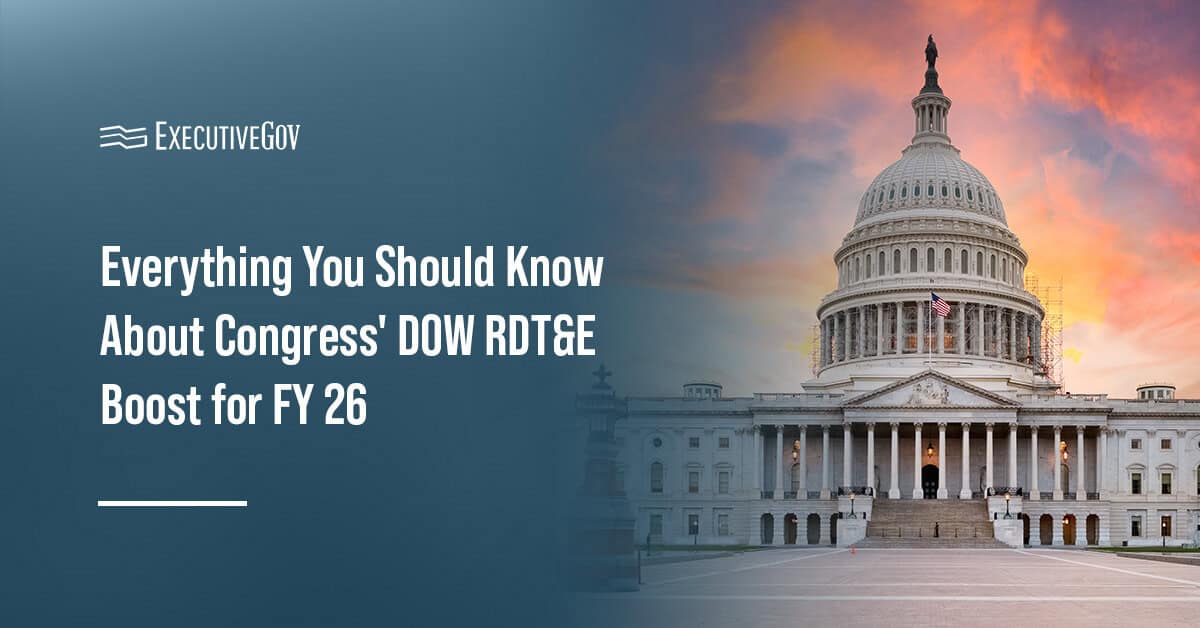Whether you are a small or large corporation, there’s no doubt contracting is an important aspect of doing business. Government contracts cover a wide range of industries, including construction, research, defense, health, and safety. The federal government spends billions annually on contracts, making it highly profitable. However, it can be confusing to understand if you’re new to the contracting world. Let’s dig into what it means and how it can help your business today!
Table of Contents
What are the general purposes of a business contract?

When a business owner starts a partnership with another party, they may find it easier when they have an agreement from the beginning. This can help avoid misunderstandings later on and focus on their success. Here are reasons why contracts are important:
Helps prevent conflicts
A business contract prevents conflicts between parties and paves a way to create enforceable obligations. Most contracts contain clauses preventing the other party from breaching their obligations. If both are successful contracting in business, they will have opportunities to review, edit, and suggest terms they may disagree about in the long term.
Contracts ensure confidentiality
Contracts grant confidentiality to conduct their operations without any problems or issues arising. It’s common for two parties to form contracts and access sensitive information from one another, especially during transactions. To be completely secure, parties can sign a nondisclosure agreement (NDA) to maintain privacy. An NDA usually involves the following:
- Confidential information included
- Names of both parties
- Exclusions from the confidentiality
- The period of validity
- Other provisions
- Appropriate means for the information to be publicized
Secures payments
Parties use contracts to ensure everybody gets paid right. A contract can sometimes be called a sales agreement, but it’s not limited to just sales of goods and services. Other details a contract may include are the following:
- The average salary of the general contractor
- Time and frequency of payments
- Autorenewal dates and terms
- Payment methods
Serves as a written agreement and a record of legal rights and responsibilities
The purpose of a contract is to create, define, and enforce the obligations of the parties involved. It’s a way of transferring rights and responsibilities from one party to another. By utilizing these contracts, businesses can reduce risks because clarity and predictability are established, and their responsibilities are laid out.
What is government contracting?

Government contracting is a process where the federal government procures goods and services from private and independent contractors for its direct benefit and to meet its needs. These contracts come with set terms and conditions with clauses from the Federal Acquisition Regulation (FAR).
So, you must familiarize yourself with the regulations because all federal agencies use them for procurement purposes. Failure to comply can result in civil and criminal penalties and other financial consequences.
How to be considered a large or small business?

According to the SBA, small businesses with independent owners are underrepresented in the industry. It’s important to determine business size because laws differ for large and small companies, and there are tax advantages for small business owners brought by the Jobs & Growth Tax Relief Reconciliation Act of 2003. Also, it’s an eligibility factor for many government set-aside contracts and programs.
Employee count per industry
The SBA has set standards that the employee size for manufacturing companies with 1500 employees is still considered small. However, mining industries with over 500 employees is considered large.
Further, in the construction business, employing heavy construction and general building contractors is considered large if its annual receipt reaches $33.5 million and small if it’s $20 million or less. Lastly, for a consulting business, it can range from $165. to $25.5 million. For the complete list of size standards by the SBA, check it here.
Government contract eligibility
Business owners need to determine their business size if it’s large or small before bidding on contracts. Contracting officers are in charge of size determination for bidding candidates, including employee size and annual receipts. Officers refer to NAICS codes to confirm the business size, evaluate the value and function of products and services, and determine the proposal’s cost.
Affiliates
Another factor to consider is the business’s affiliates (foreign or domestic). Affiliates have viable power and control of the business. For large companies, the affiliate has 50% or more voting rights.
Ways to start a contracting business

If you are willing to put in the time and effort necessary to learn about government contracting, you can be a successful business in no time! This section will enumerate the steps to take before entering business contracting:
1. Establish and determine the business structure
Business structure is a choice of legal form for a business. It also comes with tax implications. A firm can choose any one of the several legal entities to govern its business affairs.
Sole proprietorship
A sole proprietorship is the most common business type because of its simplicity. It differs from corporations and LLCs in a way that it creates no separate legal entity. The business owners are solely responsible for the entity’s liabilities. For example, if the business gets sued, the sole proprietor will have to pay for the expenses with their own money. At the same time, the company’s debts are its owner’s debts, and the company’s profits are also the owner’s profits.
The most popular sole proprietorships are:
- Marriott Hotels
- eBay
- Walmart
LLC
Limited liability companies protect owners from personal liabilities under usual circumstances. For example, if someone sued your business or goes bankrupt, the owner’s personal assets (e.g., vehicles and homes) won’t be at risk. Also, you can file your business income under your personal income taxes. However, you have to shoulder your self-employment taxes.
Another category of LLCs is professional liability companies where the business owners have a license (e.g., law and medicine) and are provided personal asset protection. This is common in some states. Other than that, the same laws apply to ordinary LLCs.
The advantages of an LCC are the following:
- Tax flexibility
- Allows the cash accounting method
- Has no owner restrictions
- Less corporate formalities
- Capable of deductible losses
corporation
Corporations are the most complex business structure among the three. This business structure is not recommended for business owners working alone or with a small number of employees. However, this is best for firms with a more extensive scope and employees that intend to grow quickly, have many investors, and plan to sell stocks in their company.
In addition, corporations have stakeholders that exchange property and money for the company’s capital stock. It usually deducts tax income the same as a sole proprietorship. The corporation’s profit is taxed as it’s earned. At the same time, it’s taxed and distributed to shareholders as dividends, resulting in a double tax without deductions.
2. Register your business name
After establishing your business structure, the next step is to register your business name. This will help build your brand, so ensure it is unique. There are many ways to register your business depending on your situation:
Trademark
This needs to be registered through USPTO. Trademarks ensure the legal protection of the business. It can come with slogans, logos, and symbols. You consider trademarks if you have a visual element to relate to your business. However, trademark registrations can cost up to $300.
Domain name
Besides legally registering your business name, domain names are also available. You can research business domain names and check for their availability here. Doing so can save you time from legally registering and later realizing its unavailability through digital channels. Also, it’s usually registered through ICANN-accredited registrars, making it different from trademarks and businesses. This gives the right domain name owner the power to prevent others from using it without court procedures.
Doing business as (DBA) name
DBA names don’t grant legal protection to your business. However, it might be required depending on the business structure and location. It may also be needed depending on the state, city, or country. For example, Donna Smith can acquire a “doing business name” as Candylit Shop. Lastly, DBA names can’t include “Inc.” or “Corp.” unless it’s registered as a corporation with the State Secretary.
3. Obtain a federal tax ID number
The federal tax ID is also the employer identification number (EIN). It’s a unique nine-digit number formatted as XX-XXXXXXX. Its purpose is for your business to be easily identified by the Internal Revenue Service. Online applications are available for companies located in the U.S. and its territories. Further, EIN allows business owners to:
- Legally employ workers
- Pay federal taxes
- Acquire business licenses
- Create a business account
- Operate as corporations
4. Ensure your qualifications
After accomplishing the basic business requirements, it’s important to determine what can disqualify you from the government contracting process. This can save you time from bidding on contracts you may not qualify for. So, take the time to read all the requirements, ensure you can meet them, and follow all the application steps.
5. Get business insurance
Business insurance is highly recommended for small and large businesses, especially independent contractors. Small accidents typically involving money, minor damages, and any lawsuit worth less than $10,000 occur daily. Knowing you have protection gives you peace of mind. The insurance for general contracting businesses is general liability insurance. It helps protect small businesses from lawsuits against property damage and physical injuries. There are steps to do before buying business insurance:
Know your risks: Determine what accidents, lawsuits, and damages are common in your business. If you operate in a commercial area, you are at risk for fire or hail storms. So, commercial property insurance is the best one for this case.
Get a trusted insurance agent: The agent you choose should be licensed and has an interest in your needs as much as their own business.
Look around: Insurance coverage and benefits differ significantly. You should compare terms and rates from different insurance companies.
Conduct yearly assessments: Your business needs and liabilities change as your company grows. Whether for equipment upgrades or business expansion, you should discuss it with your insurance agent and how it can affect your coverage.
6. Comply with business regulations
The United States government has established a wide range of federal, local, and state regulations and laws that businesses must comply with. Most of them are created to protect consumers, maintain the safety of all employees, and ensure that businesses of all sizes operate within the laws. Some of these regulations include:
- Federal antitrust laws
- Tax code
- Retirement plans
- Employment and labor laws
- Environmental regulations
- Advertising laws
- Licensing requirements
7. Put your business in order
Government contracting is very competitive. You need to plan and have the professional skills to succeed in the government market. The following tips will help you get started:
Have a good credit score
You must maintain a good credit score because some contract requirements include a surety bond. Your personal and business credit cards will be checked during the bidding process or when getting business insurance, which are also government contracting requirements. So, you should take care of your finances to afford to pay bills on time.
Work with a reputable accounting firm
They can help you find ways to reduce your tax liability by using tax credits, deductions, and other measures available to government contractors.
Create a solid business plan
Your business plan should include a detailed description of your company’s products and services, a financial outline that shows how much money you expect to raise, and other relevant information required.
8. Research about licensing requirements
Another step to being a government contractor is to research the state and local licensing requirements for your field of expertise. For example, if you are an electrician who works on electrical systems, the state could require the state board of electricians to license you. Also, most states want to see proof of your business’s experience in the industry. You may be required to pass your financial records to validate your net worth and provide general liability insurance evidence. In some cases, you’ll need an endorsement from another licensed professional in your field of expertise before becoming a state contractor.
9. Set up a new business account
Having separate bank accounts for your personal and business transactions are important. You will need it as soon as you receive payments from your clients. After choosing a bank, you need to provide the following business details to open an account:
- Business formation and ownership agreement documents
- Business license
- Employee identification number
- Social security number for sole proprietors
10. Participate in industry associations
Aspiring and new government contractors who want to stay up-to-date on government contracting issues should join an association that offers a newsletter or newsletter subscription service, networking events, and other opportunities to learn from industry peers.
Where to find government contracting opportunities?
FedBizOpps
FedBizOpps is an online database that provides information on procurement contracts and other business opportunities posted by federal agencies. The website also includes information on potential partners in the private industry that may be able to assist with your goals or objectives. The site has been to SAM.gov and is now named “Contracting Opportunities”. Procurement opportunities beyond $25,000 are posted here. Alternatively, you can check census.gov for more information about contracting opportunities below $25,000.
SBA
The SBA is the federal government’s primary source for information on small business opportunities, including contracting opportunities. It offers various services and programs to help entrepreneurs start, grow, and succeed in business. Among these are:
- Providing a single point of contact for small firms seeking government contracts (SubNet)
- Providing free access to a comprehensive database containing set-aside and sole-source contracts available to small businesses across America.
- Offering comprehensive training programs on topics including preparing proposals, negotiating contract terms and conditions, managing complex procurement processes, and more.
- Preparing small businesses for future challenges by offering workshops on topics such as social media marketing, public relations strategies, and other skills.





